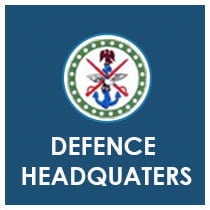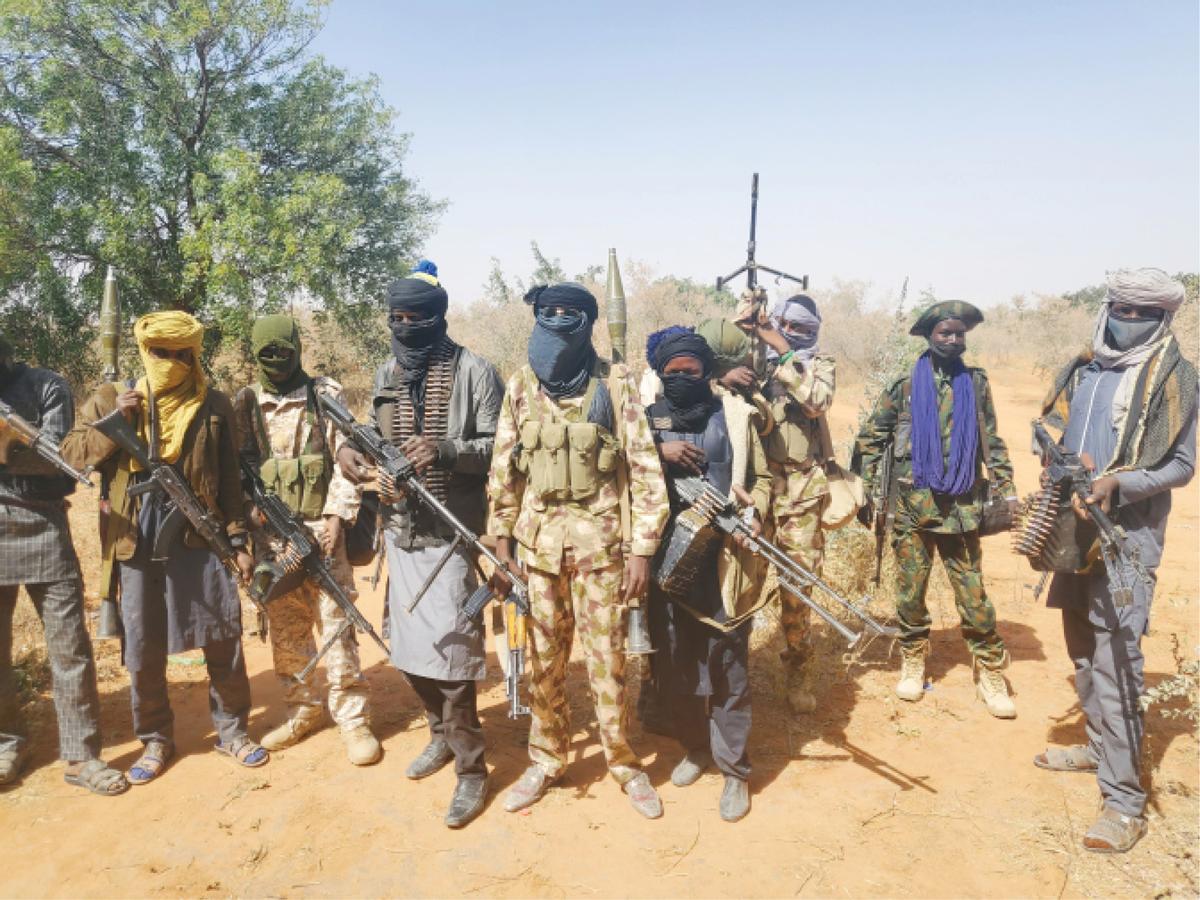MILITARY-MEDIA RELATIONS IN NIGERIA: COLLAPSING THE WALL OF MUTUAL SUSPICION
By Chidi Omeje
A forth night ago, Nigerians were jolted by the news that armed military personnel had invaded the Maiduguri and Abuja offices of Daily Trust Newspapers, arrested some editors and carted away computers and other equipment belonging to the media house. At first nobody knew why the soldiers took the drastic action that was reminiscent of the brutal military past. It was however revealed later that the action followed the newspaper’s report in which it was alleged to have preempted military’s planned operation against Boko Haram in Baga, Borno State, thereby endangering the lives of troops. This kind of action and reaction exemplifies the often-frosty relationship between the military and media in Nigeria, and we shall attempt in this write up to probe its dynamics.
As a matter of fact, the military-media relation is one of the critical dimensions of the whole civil-military relations gamut. The importance of their relationship is underpinned by the fact that both institutions – military and media- are significantly indispensable in the progressive running of any society. They indeed play different roles and might see things from different point of view but in the matters of national security and peace, they must understand, promote, protect and appreciate each other as partners in progress and co-stakeholders in the overriding task of nation building.
For instance, the military and the media in spite of their strategic importance to national security, sometimes appear to hold contrary views on what constitute national security: the military owing to the sensitive nature of its duties considers secretiveness not as a ‘shortcoming’ but as an important, strategic attribute while media, the ‘watchdog of society’, believes that the public ought to know everything and indeed expect the military to open up in anything. It is therefore expected that such lacuna will in most cases breed degrees of animosity between the two institutions, straining their relationship in the process. The aftermath is that the media report of the military will be affected and the military’s perception of media coverage of its activities will also be affected. But the military-media relations in Nigeria had always been punctuated with mutual suspicion, bitterness and lack of understanding, especially during the military rule.
It therefore becomes most imperative to seek ways of collapsing the wall of mutual suspicion between the two critical institutions and by extension, civil-military relations. The inclination by both parties to discharge their responsibilities with a shared sense of patriotism will enhance and sustain the country’s democracy. Suffice it to say that the media is as relevant to the military and the society at large, as the military is to the media and the general society within the context of their constitutional mandates.
Several scholars and authority figures in the military-media relations have expressed worry about the implication of disunity and mutual suspicion between the two. In fact, debates have been on-going as to whether or not to classify as friend or foe, mass media which report warfare and other security operations without due consideration for security and national interest. This debate is understandable given the penchant for some sections of the Nigerian press to report, in most unprofessional manner, obvious sensitive and classified defence and security information in the mass media thereby compromising the national security and often times putting the lives of security agents and military personnel in the harm’s way.
The allegation against Daily Trust incident is not unprecedented; sometime in the 80s when Nigeria was locked in bitter spat with Cameroon over the Bakassi Peninsula, one of the national dailies, Vanguard newspaper reported graphic details of a planned operation of the Nigerian Army; the said report compelled the army to cancel the operation!
Not very long ago also, a Nigerian newspaper, quoting a vague international source, carried a screaming headline that the Nigerian Army was ravaged and weakened by HIV/AIDS. That report created the impression that average Nigerian soldier is ravaged by the deadly virus. How ludicrous! Such pattern of reporting lends credence to the oft complaint that our media reporters, most times exhibit obvious lack of adequate knowledge of the military institution in terms of its duties, protocols, organisation, activities and capabilities.
Read Also:
But the media reporters on the other hand sometimes do have genuine reasons why it reports what it reports about defence and security matters. Constrained by lack of access to information and boxed in by the demand to meet production schedules, many reporters have found themselves in such quagmire that the only elixir is to go to press with the ubiquitous ‘reliable source’ as the only source of information. This is the most potent breeding ground for the twin vices of sensationalism and subjectivism in defence reporting!
Information is a very critical tool required by journalists to be able to carry out the jobs assigned to them by their organisations on daily basis. They thrive on the information they receive from their various sources to enable them meet up with their daily obligations of providing newsworthy information within stipulated deadlines for the media organisations. Journalists on the defence beat usually complain that the military most often times are not only stingy with information but that the military institution over classifies its information.
All these boils down to constraining lack of access to military information for reporters. It is therefore suggested that for mutual institutional and indeed national interest, ways must be evolved by which to aid media access to unclassified information about the military. This is very necessary as the military need to show greater regard for the right of the media to as much information as possible and in good time, in the interest of the public.
It must be recognised that the better informed the Nigerian public is about the operations of government including those of security and military affairs, the greater will be the health of the Nigerian democracy; the more also will Nigerians know of and appreciate their military. The media conversely should reciprocate such gesture and ensure it does not indulge in anything that may compromise the security of military operations and indeed national security.
It must however be acknowledged that the military on its own, having recognised the indispensability of the media in the success of its operations, have developed media management departments to enhance their relationship with the media. The Nigerian Army (NA) formally established its Public Relations Directorate in 1967 to counter the war propaganda of the then Republic of Biafra. In the Nigerian Navy (NN), Public Relations was first seen as a ‘purely mess function’. However, the NHQ in 1972 formally established its Directorate of Information whose responsibility also includes media relations. The Nigerian Air Force (NAF) also followed suit by establishing its Directorate of Public Relations and Information in the late 1970s. The Defence Headquarters, desirous of managing and projecting its image to the public, in a more coordinated and professional manner, through the media, established its own public and media relations directorate named Directorate of Defence Information in 1993.
Modern military or para-military operations can hardly escape press attention and presence. This probably explains why the media/public relations departments of the services – Army, Navy and Air Force – all strive to professionalize their media relations practice and indeed strengthen its relationship with the media. These are geared towards fostering better relations between the military institution (and personnel) and mass media practitioners. In turn, the media operators have always tended to do their job without jeopardising operational security, in the spirit of patriotism and national security.
The impact or influence of the media in modern day warfare is fundamental to either the success or failure in war, or in military operations other than war, like Peace Support Operations and Internal Security Operations/Low Intensity Conflicts. For the military, dealing with the media is first and foremost a command function. It thus explains why commanders do recognise the need to deal with the media and to develop media strategy as part of their job. Public opinion and the media can critically affect operations. So, their potential impact is always taken into account early in any operations planning.
With these in mind, and having identified sources of friction or extent of communication gap between the military and the media, there is therefore the overriding need to bridge the gap. This can be achieved in two layers: the first is effort to build a consensus between the military and the media on what constitutes national security and how it can be protected. This can be pursued through continued engagement forums involving media executives and officers of the Nigerian Armed Forces.
The second is a sustained and continuous training programme for defence correspondents on coverage of the media. This will provide platforms for them to be let into the workings of the military – its organisation, capabilities, sensibilities and protocols, and how the media can seek and get information from the institution.
The media should see partnership with the security agencies both as a social responsibility obligation and patriotic duty than a favour to the agencies. It is strongly believed that if the issues raised above are put to practice, the wall of mutual suspicion between the media and the military will be collapsed and the enduring bridge of understanding firmly built.



